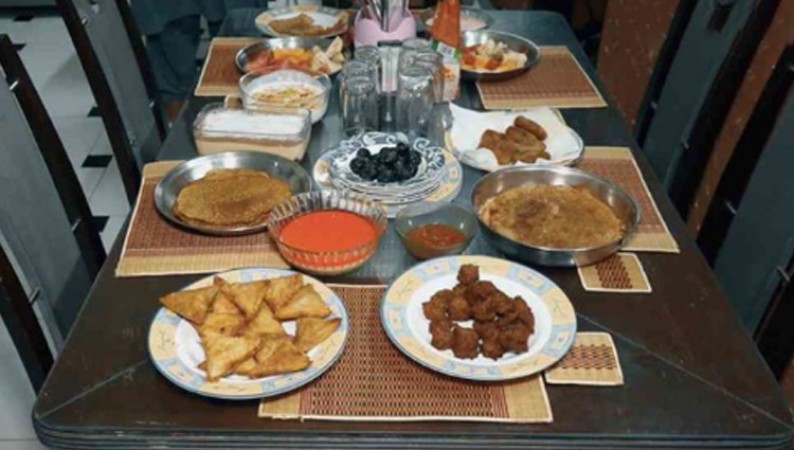
Karachi: Every Ramadan, Memon households in Karachi, a city in southern Pakistan, revisit simple recipes that have been handed down through the generations, adding a sense of nostalgia and family to suhoor and iftar table spreads.
The Kutch, Gujarat, and Kathiawad regions of India are home to the small towns and villages that gave rise to the Muslim ethnic group known as the Memons.
Many Memons immigrated to Pakistan after British India was divided in 1947 and the creation of Pakistan, particularly to the port city of Karachi.
Also Read: A support service reports that a boat carrying 400 migrants is lost between Libya and Malta
Memons have historically been a mercantile community, and in the 18th and 19th centuries, they started migrating significantly outside of India. Because Memon ancestors frequently travelled through these regions as traders and adopted their culinary techniques to give a twist to their original recipes, South Indian, Bengali, and Arab cuisine have all had a significant influence on Memon cuisine.
"We are from India's Bagasara. It is a small Gujarati town. We obtained these recipes from there when (my) grandmothers migrated there during the time of the partition, said Yasir Billoo, a 48-year-old food consultant from the Memon community, to Arab News.
"We prefer to keep the recipe straightforward, but they pack a punch of nostalgia. They make us think of our maternal and paternal grandparents, nani and dadi.
Saeeda Haroon, an esteemed 80-year-old community member, claimed that the flavour of Memoni dishes was improved by the use of coriander, mint, and other herbs.
Also Read: Four people die in a French avalanche two go missing
"While cooking, we really toss the food. To make the food more fresh, we add coriander, mint, and spring onions, Haroon told Arab News.
We don't use much oil because of health concerns.
According to Billoo, there are many Memoni dishes that give iftar platters and get-togethers for Ramadan evening meals a unique flair.
Bajray ke kebab (millet flour kebabs), a version of "nargisi kebab" without the egg, "lambe kebab" (cylindrical-shaped kebabs), and "purey," a kind of paper-thin pancake, are the main fried foods prepared in Memon homes during Ramadan.
According to Billoo, the spring onions added to the millet flour kebabs for a fresh flavour were made into rough, rounded shapes. His grandmother's recipe for lambe kebabs, which was passed down through the generations, called for ground beef, bread, eggs, herbs, and spices.
Furthermore, Billoo discussed "chilley" or "purey," describing them as a "very distinctive and significant part of the Memoni cuisine."
"We (cook) a lot of our savoury and sweet chillas, which we refer to as "purey," with dipped sugar, and the (savoury) ones that are made with egg, during Ramadan," he said. Paper-thin describes it. We can also eat it for breakfast. During Ramadan, it is frequently served.
Considering the purity of its ingredients, Memon cuisine was once thought to be healthy, according to Mehrun Rafiq, a 75-year-old grandmother.
Rafiq told Arab News, "Memoni cuisine made decades ago in our homes in India was very good for health." It was made with ingredients like flour, eggs, and "asli ghee," which were designed specifically for women who had just given birth to infants.
When discussing the preferred Memoni desserts for Ramadan, Billoo mentioned faluda, or vermicelli noodles made with sweetened milk, as the main component.
China grass powder, sugar, and milk or water are used to make the dish. The sweet red syrup Rooh Afza, which is popular in Pakistan and India, is used to give the food colour, flavour, and a sweet aroma.
Also Read: In the second day of "Joint Sword" exercises, China simulates Taiwanese strikes
According to Billo, Memoni recipes are simple to prepare and many can be done in advance to be served at iftar during Ramadan.
"We personally prefer not to alter the recipes in any way. They're very basic," he declared. "The simplicity of the flavours in our Memoni cuisine is one of its beauties. When four to five ingredients are combined, amazing things happen.